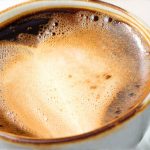The modern world relentlessly pushes us toward constant stimulation. From demanding jobs to endless news cycles and social media notifications, our nervous systems are often in overdrive. Many turn to habitual caffeine consumption to cope with fatigue, creating a vicious cycle where increased intake is needed just to maintain baseline energy levels. However, this reliance on diuretics – substances that promote fluid loss – can inadvertently contribute to dehydration and anxiety, exacerbating the very stress we’re trying to alleviate. There’s a growing recognition that cultivating inner calm requires more than simply avoiding stimulants; it demands conscious hydration with beverages that naturally support relaxation and well-being without stripping the body of essential fluids.
Finding daily calm isn’t about eliminating all stimulating factors, but rather building resilience and incorporating practices that gently soothe the nervous system. Hydration plays a crucial role in this process, as even mild dehydration can impact mood, cognitive function, and stress levels. Choosing drinks that are naturally hydrating and offer calming properties – beyond just water – provides an opportunity to nourish both body and mind. This isn’t about restrictive diets or complicated routines; it’s about making mindful choices that support a more balanced and peaceful state of being throughout the day. It’s about finding alternatives that work with your body, not against it. Consider incorporating strategies for daily hydration to support overall well-being.
The Power of Herbal Infusions
Herbal teas, often referred to as tisanes (as they aren’t technically “tea” from the Camellia sinensis plant), are a fantastic starting point for non-diuretic hydration and calm. Unlike black or green tea which contain caffeine, many herbal infusions offer gentle support for relaxation without any stimulating effects. The variety available is astounding, allowing you to tailor your choice to specific needs and preferences. – Chamomile, with its well-known calming properties, is a classic choice for evening unwinding. – Lavender provides a floral aroma that can ease tension and promote sleep. – Lemon balm offers a light, citrusy flavor and has been traditionally used to reduce anxiety. These aren’t just pleasant drinks; they are steeped in centuries of traditional use for supporting emotional well-being. You might also explore herbal infusions to support urinary calm.
The beauty of herbal infusions lies not only in their calming effects but also in the ritual itself. The act of preparing tea – selecting herbs, heating water, allowing it to steep – creates a moment of mindful pause within a busy day. This intentional slowing down can be incredibly grounding and provides an opportunity for self-care. Consider incorporating this into your routine: perhaps a chamomile infusion before bed or a lemon balm tea during a stressful workday. The warm temperature itself is soothing, encouraging relaxation and promoting digestive comfort – often disrupted by stress.
Furthermore, many herbal infusions boast additional health benefits beyond calming effects. Peppermint tea can aid digestion, ginger tea can soothe nausea, and rosehip tea provides a boost of Vitamin C. This makes them not just enjoyable beverages but also supportive allies for overall wellness. It’s important to source high-quality herbs from reputable suppliers to ensure purity and potency. Organic options are generally preferred to avoid exposure to pesticides or other unwanted chemicals.
Beyond the Usual: Lesser-Known Calming Beverages
While chamomile, lavender, and peppermint often take center stage in discussions about calming drinks, there’s a whole world of lesser-known beverages that offer similar benefits. Passionflower tea, for example, is gaining recognition for its ability to reduce anxiety and promote sleep, though it may have a slightly earthy flavor some find less appealing than floral options. Oatstraw infusions are another excellent choice, providing a gentle calming effect while also nourishing the nervous system with essential minerals. These aren’t quick fixes, but rather beverages that offer sustained support over time through regular consumption.
Kava, traditionally used in Pacific Island cultures for ceremonial purposes, is known for its relaxing and anxiolytic properties. However, it’s crucial to exercise caution when considering kava, as it can interact with certain medications and should be consumed responsibly. Always research reputable sources and understand potential side effects before trying kava. Another interesting option is blue lotus tea, which has been used for centuries in ancient Egypt for its calming and mildly euphoric effects. Again, responsible sourcing and understanding of potential interactions are paramount.
Finally, don’t underestimate the power of warm milk – specifically, golden milk (turmeric milk). Turmeric contains curcumin, a compound with potent anti-inflammatory properties that can also contribute to feelings of calm and well-being. Adding spices like cinnamon and ginger further enhances both flavor and health benefits. Golden milk is particularly comforting before bed, promoting relaxation and aiding sleep.
Creating Your Own Calming Blend
One of the most rewarding aspects of exploring non-diuretic drinks for daily calm is the ability to create customized blends that perfectly suit your preferences and needs. Start with a base of one or two calming herbs – chamomile and lavender are a great starting point – and then experiment with adding complementary flavors and benefits. For example: – A blend of chamomile, lemon balm, and rose petals offers a delicate floral aroma and soothing properties. – Combining oatstraw, peppermint, and spearmint provides a refreshing yet calming experience. – Mixing passionflower, valerian root (use sparingly as it can be potent), and lavender creates a deeply relaxing infusion for bedtime.
The key to successful blending is to consider the flavor profiles of each herb and how they complement one another. Start with small quantities and gradually adjust until you achieve your desired taste. You can also experiment with adding other ingredients like dried fruit, spices, or even edible flowers to enhance both flavor and visual appeal. Remember that quality matters: sourcing organic herbs from reputable suppliers will ensure the best results.
Don’t be afraid to get creative and personalize your blends based on your individual preferences and needs. Keep a journal of your experiments to track what works best for you and create recipes that you can easily replicate. The process itself is part of the self-care ritual, allowing you to connect with yourself and cultivate a sense of calm through mindful creation.
Hydration Beyond Tea: Water Alternatives
While herbal infusions are excellent choices, it’s important not to overlook the fundamental importance of plain water. Often, we equate hydration with specific beverages, forgetting that water itself is the ultimate source of replenishment. However, for those who struggle to drink enough plain water, there are numerous alternatives that offer both hydration and flavor without diuretic effects. Coconut water, naturally rich in electrolytes, is a fantastic option, especially after physical activity. It’s subtly sweet and incredibly refreshing.
Fruit-infused water is another excellent way to enhance hydration. Adding slices of cucumber, berries, citrus fruits, or herbs like mint to your water creates a flavorful and visually appealing beverage that encourages you to drink more. This method allows you to customize the flavor to your liking and provides a subtle boost of vitamins and antioxidants. Avoid adding sugar or sweeteners, as these can negate some of the health benefits.
Finally, consider incorporating hydrating foods into your diet. Fruits like watermelon, strawberries, and oranges have high water content and contribute significantly to overall hydration levels. Vegetables such as cucumbers, celery, and lettuce are also excellent choices. Remember that hydration isn’t just about what you drink; it’s about a holistic approach that incorporates both beverages and food. Focusing on consistent, mindful hydration throughout the day is crucial for maintaining physical and mental well-being. To support this, consider incorporating caffeine-free drinks into your daily routine.





















